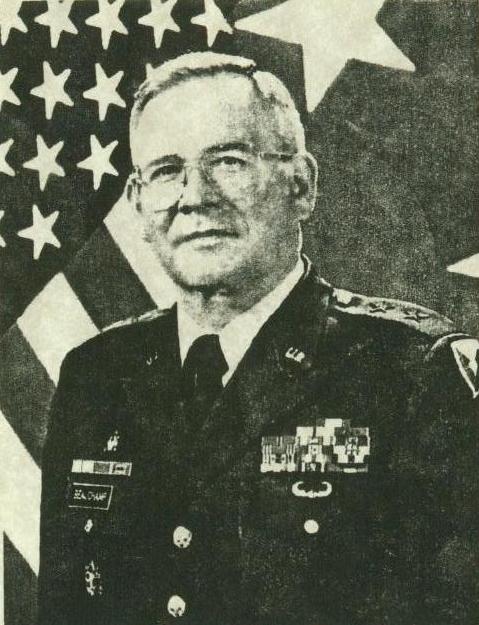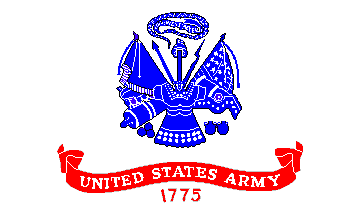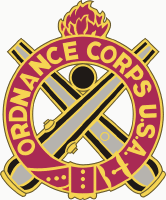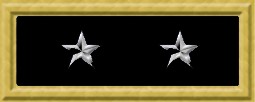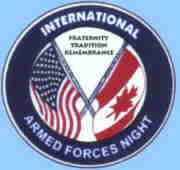Major General
Roy E. Beauchamp
Born on January 1, 1945, in Sneads, Florida, Roy Beauchamp enlisted in the Army in 1965 and completed Quartermaster Officer Candidate School in 1966. In 1968, following some initial staff assignments with the 85th Maintenance Battalion in Hanau, Germany, he assumed command of the Headquarters and A Company, 85th Maintenance Battalion; and later, in 1969, command of the 536th Heavy Equipment Maintenance Company in South Vietnam. Upon returning to the States, he transferred to the Ordnance Corps and graduated from the University of Nebraska in 1972 through the Army's Degree Completion Program. After a follow-on assignment with the Tank Automotive Command from 1973 to 1977, he was assigned as the Commander, Lima Army Modification Center, where he managed a modification program for 15,000 M880 trucks.
In 1979 to 1980, Beauchamp was reassigned to Korea and served as Chief of the Automotive, Armaments, Combat Vehicles, and Communications-Electronics Division in the 19th Support Command. Following completion of the Army Command and General Staff College, he served first on the staff of the Deputy Chief of Staff for Logistics, US Army Forces Command; and then on the staff of the Deputy Chief of Staff for Logistics, Department of the Army. As a DA staff officer, he worked with the Logistics Control Activity to improve the worldwide management of major assemblies and saved the Army hundreds of millions of dollars by achieving unprecedented levels of unserviceable returns to the supply system.
In 1984, Beauchamp returned to Germany to command the 2nd Forward Support Battalion (FSB) in the 3rd Infantry Division, the first FSB to be activated in Europe. In 1986, he was reassigned to the 2nd Support Command in Stuttgart, Germany, as Assistant Chief of Staff for Materiel where he created both a Corps Distribution Center and a Class IX Redistribution Center.
Following graduation from the Industrial College of the Armed Forces and a tour of duty as a Colonels' Assignment Officer, Beauchamp took command of the Eagle Support Brigade of the 101st Airborne Division at Fort Campbell, Kentucky, and deployed to Saudi Arabia. While deployed as part of Operations Desert Shield and Storm, he supported more than 30,000 Soldiers. In 1992, Beauchamp returned to the DA staff as Executive Officer to the Deputy Chief of Staff for Logistics. In 1993, he took command of the Defense Industrial Supply Center, Philadelphia, Pennsylvania, where he was responsible for directing 1,800 personnel and managing 1.1 million lines of industrial supplies for 15,000 customers. And in 1995, he became the Deputy Chief of Staff for Research, Development, and Acquisition at US Army Materiel Command, where he was responsible for managing a $3 billion annual research and development budget at nine Research and Development Centers and 400 system acquisition programs.
However, some of Beauchamp's most significant contributions to the Ordnance Corps were undoubtedly those he championed in the last five years of his career. From 1997 to 1999, Beauchamp served as Commanding General of the Tank-automotive and Armaments Command, with 12,000 personnel at six locations and a $6 billion annual operating program. In 1999, he assumed duties as Director of Logistics and Security Assistance at US Central Command, Tampa, Florida, where he managed a security assistance program to 17 Asian and African countries. From 2000 to 2002, he served as Deputy Commanding General of US Army Materiel Command, where he managed research, development, inventory management, and depot-level maintenance in six commodity commands and operations at three arsenals and nine ammunition plants. Lieutenant General Beauchamp retired in 2002 after 37 years of distinguished and dedicated service to the Army and the Ordnance Corps.
His military awards and decorations include the Distinguished Service Medal, Defense Superior Service Medal, Legion of Merit with three oak leaf clusters, Bronze Star Medal, Meritorious Service Medal with five oak leaf clusters, the Army Commendation Medal With one oak leaf cluster and the Air Assault Badge.
General Beauchamp and his wife, Olivia, have one son, Joshua.
